Related Research Articles

The Royal Society of Edinburgh (RSE) is Scotland's national academy of science and letters. It is a registered charity that operates on a wholly independent and non-partisan basis and provides public benefit throughout Scotland. It was established in 1783. As of 2021, there are around 1,800 Fellows.
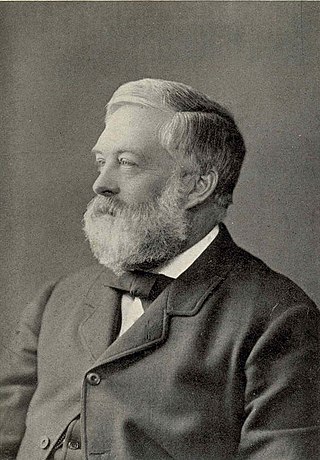
Sir Charles Wyville Thomson was a Scottish natural historian and marine zoologist. He served as the chief scientist on the Challenger expedition; his work there revolutionized oceanography and led to his being knighted.

Sir William Beatty was an Irish surgeon who served in the Royal Navy. Born in Derry, Ireland, he joined as a surgeon's mate in 1791 at the age of 18. He is best known as the ship's surgeon aboard HMS Victory during the Battle of Trafalgar, at which he witnessed the death of Admiral Horatio Nelson, and for writing an account of that battle – Authentic Narrative of the Death of Lord Nelson.

Trinity is a district of northern Edinburgh, Scotland, once a part of the burgh of Leith. It is one of the outer villa suburbs of Edinburgh mainly created in the 19th century. It is bordered by Wardie to the west and north-west, Newhaven to the north-east, Victoria Park to the east and Bangholm to the south.
Inspector-General Belgrave Ninnis was a Royal Navy surgeon, surveyor, Arctic explorer, and leading Freemason, from London. He graduated as a Doctor of Medicine from the University of St Andrews in 1861, and the same year entered the navy as an Assistant Surgeon. From 1864 to 1866, Ninnis served as part of a surveying expedition to the Northern Territory of South Australia, helping to chart the area to the west of the Adelaide River and returning biological specimens to Adelaide for study. In 1867 Ninnis was appointed to Greenwich Hospital, and in 1875 he joined the British Arctic Expedition under Captain Sir George Nares, serving as Staff-Surgeon on HMS Discovery. When disease spread among the expedition's dogs, Ninnis was charged with investigating the cause; his findings later formed the basis of a published work. At the conclusion of the expedition in 1876 he received the Arctic Medal for his service, and was promoted to Fleet-Surgeon.
Henry Brougham Guppy was a British surgeon, geologist, botanist and photographer. He was awarded the Linnean Medal in 1917.

William Wright (1735–1819) was a Scottish physician, botanist and slave owner. In 1783 he was a joint founder of the Royal Society of Edinburgh.
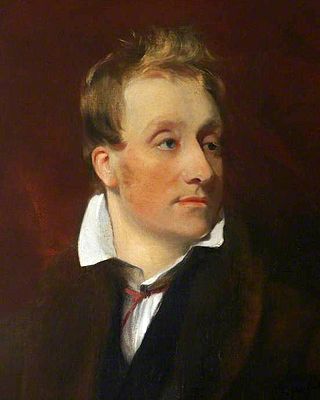
Dr James Wardrop or Wardrope FRSE FRCSEd FRCS (1782–1869) was a Scottish surgeon and ophthalmologist.

Sir Andrew Douglas MaclaganPRSE FRCPE FRCSE FCS FRSSA was a Scottish surgeon, toxicologist and scholar of medical jurisprudence. He served as president of 5 learned societies: the Royal Medical Society (1832), the Royal College of Surgeons of Edinburgh (1859–61), the Royal College of Physicians of Edinburgh (1884–87), the Royal Society of Edinburgh (1890–5), and the Royal Scottish Society of Arts (1900).

James Spence FRSE FRCSEd (1812-1882) was a Scottish surgeon. He served as President of the Royal College of Surgeons of Edinburgh 1867/68.
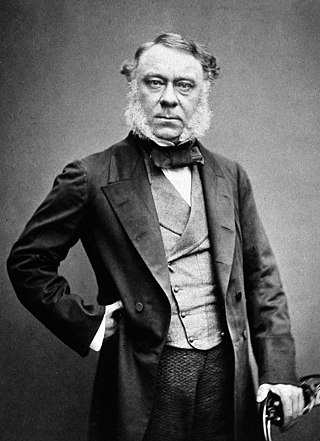
James Ormiston McWilliam (1808–1862) was a Scottish naval surgeon, physician and writer on infectious diseases, best known as medical officer to the 1841 Niger expedition.
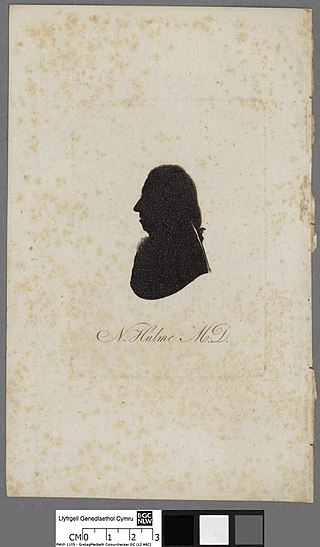
Nathaniel Hulme, FRS was a British physician.

Sir Patrick Heron Watson was an eminent 19th-century Scottish surgeon and pioneer of anaesthetic development. He was associated with a number of surgical innovations including excision of the knee joint, excision of the thyroid and excision of the larynx for malignant disease. He was President of the Royal College of Surgeons of Edinburgh on two occasions, an unusual honour, and was the first President of the Edinburgh Dental Hospital. He was a great advocate of women training in medicine and surgery and did much to advance that cause.

James Miller FRCSEd, FRSE was a surgeon and medical author in Edinburgh. He was author of the important 19th century textbook, Principles of Surgery. Like his father he became a member of the Free Church of Scotland in 1843 and was a firm believer in temperance.

David Maclagan MD, FRSE, FRCSEd, FRCPE was a prominent Scottish medical doctor and military surgeon, serving in the Napoleonic Wars. He served as President of both the Royal College of Physicians of Edinburgh and the Royal College of Surgeons of Edinburgh. He was Surgeon in Scotland to Queen Victoria.
Sir David James Hamilton Dickson OSV FRSE FRCSE FRCPE FLS (1780–1850) was a Scottish naval surgeon, medical author and amateur botanist, serving during the Napoleonic Wars and War of 1812 between Britain and the United States.
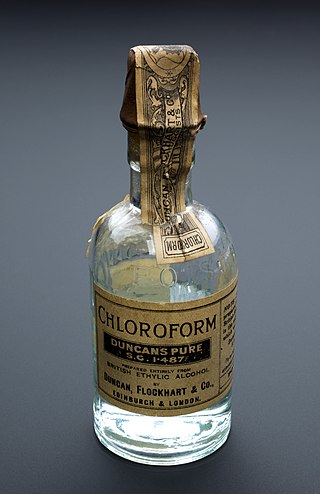
James Duncan FRSE FRCS FRCSE was a Scottish surgeon and manufacturing chemist responsible for much of the British supply of chloroform in the mid-19th century. From 1839 to 1866 he was Director of Duncan Flockhart & Co one of Scotland’s largest chemical manufacturers.
Robert Scot Skirving was a physician and surgeon in Australia. He was born in the United Kingdom. The University of Sydney named the Scot Skirving Prize in his honour.
Surgeon Major James Sanderson was a 19th-century Scottish military surgeon and amateur meteorologist.
Arthur Abney Walker FRSE (1820–1894) was a 19th-century British botanist.
References
- ↑ The Royal Society of Edinburgh: 100 Medical Fellows elected 1841-1882
- ↑ Biographical Index of Former Fellows of the Royal Society of Edinburgh 1783–2002 (PDF). The Royal Society of Edinburgh. July 2006. ISBN 0-902-198-84-X. Archived from the original (PDF) on 4 March 2016. Retrieved 13 June 2017.
- ↑ Edinburgh and Leith Post Office Directory 1878-79